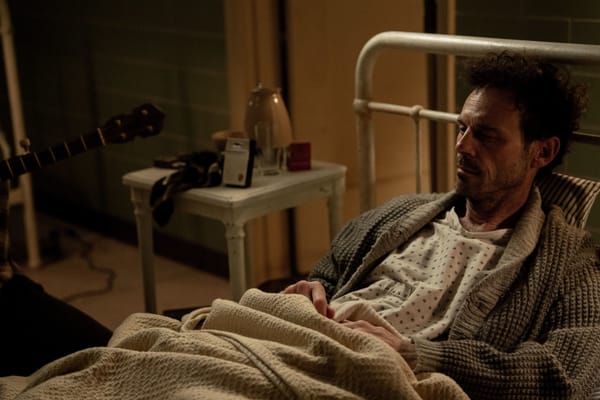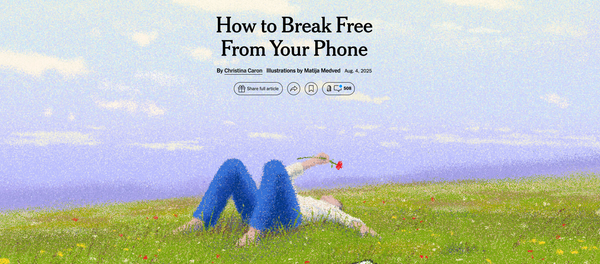The Abiding Power of Simplicity
The first of several posts about themes and ideas from the Faith Formation Creators Collective

Friends! The reason you haven't heard from me in a couple weeks is that I've been getting ready for a plenary and a workshop at this week's Faith Formation Creators Collective event, hosted by my wonderful former colleagues in Lifelong Learning at Virginia Theological Seminary.
I'm not sure I have much choice but to "go dark" over here while I'm prepping for this kind of thing, as a matter of general capacity. But I promise to share reflections and resources after the fact in a way I hope will be worth the time away from regular publishing.
(As always, my email is always open if you don't think you're getting what you pay for here—I am a "no questions asked" refund-granter if this value exchange isn't working out for you. No hard feelings, truly.)
Onward!
The first of my big noticings from this gathering was a theme running through several of my interactions with people who shared questions and comments.
At the beginning of my Wednesday workshop on storytelling, I gave a bit of a disclaimer (surprise, surprise) about the possible reductionism involved in an aphorism that set up our first activity. In his primary volume on facilitating digital storytelling, Joe Lambert repeats John Gardner's claim that
that the plots of all stories can be boiled down to one of two types: 1) “A stranger came to town…” or 2) “We went on a vacation.” In other words, at some moment in your life, change came to you or you went towards change. As you become clear about the meaning of your story, you can bring your story to life, by taking us into that moment of change. (emphasis mine)
After an exercise in which we shared the "strangers" or "vacation" landscapes of stories from scripture or our lives, I took a couple questions and comments from the group. One person shared something that has stayed with me. They mentioned that they used to work on political campaigns, and the core message of any campaign is either "stay the course" or "it's time for a change."
You really need the clarity about which story you're telling before you can get anywhere with it in the political world, I think was their implication—that this simplicity has a clarifying and centering power.
We both agreed that these change narratives we share in faith-based storytelling require that same kind of clarity. Subtlety, nuance, and comprehensiveness all have their place. But boiling the idea down to something you can write on a notecard might be the key to unlocking the idea's full potential.
This exchange dovetailed nicely into my plenary talk on Thursday, which built to the message I shared here a couple months back about teaching transparently by convening little pedagogical moments where we invite our learners to peek behind the curtain of our teaching approach.
One of the questions I got after this proposal was about when and how such an approach might be appropriate with very young children. After a minute of panicked riffing, I think I arrived back at that same crucial theme: striving for ever greater simplicity. We workshopped a few pedagogy moments that might be appropriate in a Godly Play class, which boiled down to little more than sharing the words on the metaphorical notecard.
- "The questions we ask about the story are as important as the words of the story."
- "The work you do to respond to the story is part of your prayer."
I'm not great at distillation or simplicity, though at least I get a lot of practice as the parent of a kindergartener. But these exchanges with participants reminded me very pointedly of how important it is to be faithful to the call nonetheless.
The more simply we can say something to the people we accompany in faith formation—even and especially something profound—the better our chances that the insight itself will serve as an invitation to learning and growth.



